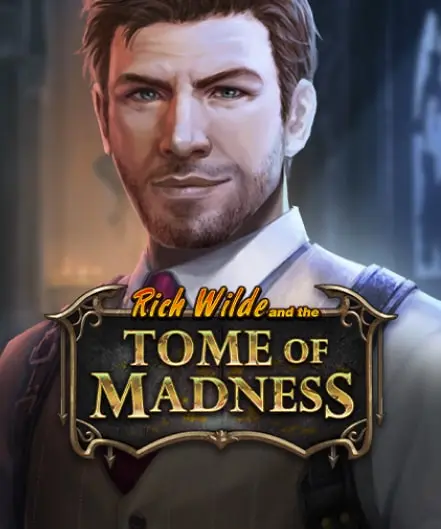
În anul 2018, cazinoul MrBit a intrat pe piața jocurilor de noroc. Cazinoul online MrBit era fondata de Avento MT Limited si licențiata de ONJN. Pe platforma, se prezintă aproximativ 3 200 de jocuri online și variantele de masa. Cazinoul oferă un pachet bonus de până la 2 500 de lei și 500 de rotiri gratuite pentru toți jucătorii noi.
In acest articol, va prezentăm descrierile jocurilor și bonusurilor ale cazinoului, mrbit reviews, condițiile de plăți și retrageri.

Jocuri disponibile la cazinou MrBit
Acest cazinou are parteneriate cu 75 de furnizori de software, ceea ce înseamnă că oferă aproximativ 3000 de variante doar în categoria sloturilor. Cele mai populare sunt sloturile de la Amusnet.
Acest cazinou propune mai mult de 370 de sloturi. Fanii sloturilor clasice cu fructe se vor bucura de jocuri atemporale precum Burning Hot și Shining Crown de la Amusnet, Redfate 20 și Scorching Reels 40 de la Pateplay. Dacă preferi ceva mai modern, jocuri precum Sweet Bonanza și The Hand of Midas de la Pragmatic Play oferă un gameplay inovator, funcții interesante și runde bonus. Farmecul acestor jocuri constă în simplitatea lor. Fie că sunteți un jucător începător sau experimentat, aceste sloturi oferă divertisment dinamic, cu o grafică atrăgătoare și jackpoturi mari.

Jucătorii dornici de senzații tari se pot bucura de Vampire Night, 20 Coins și Rise of Ra și de multe alte sloturi cu tematică egipteană antică. Multe jocuri oferă un jackpot progresiv.
Site-ul Mr Bit are o caracteristică interesantă numită Jackpot Meter, un instrument care adună informații actualizate despre jackpot-uri „fierbinți”.
Dintre jocurile de masă la MrBit Casino, jucătorii au opțiuni de blackjack, ruletă și baccarat. Jocurile live de la MrBit sunt de o calitate impecabilă.
Jocurile noastre

BOOK OF 99

Wild Bounty Showdown

Wild Bandito

Dinopolis

The Dog House Megaways

Space Wars

Sakura Fortune

Dino P.D

BUFFALO 50

Mayhem

Beat the Beast Griffin's Gold

60 Second Heist
Bonusuri și promoții la cazinou MrBit
Ne vom uita acum la bonusurile pentru jucătorii noi și la mrbit bonus fără depunere. Dar asta nu este tot - există și alte oferte pe site care pot fi activate fără a utiliza coduri promoționale. Sloturile zilnice și turneele de jocuri live îți oferă și mai multe șanse de câștig.
Bonus de bun venit
Încă de la prima depunere, un nou client de cazinou are posibilitatea de a primi un bonus de două mii și jumătate de lei plus 650 de rotiri gratuite! Bonusul va fi valabil pentru primele trei depuneri.
Tabelul de mai jos prezintă condițiile de folosire acestui bonus:
| Condițiile bonusului de bun venit | Detalii |
|---|---|
| În ce constă acest bonus | Două mii și jumătate de lei și 650 de rotiri gratuite |
| Perioada în care puteți folosi bonusul | Șapte zile după data de activare |
| Bonusuri pentru primele trei depuneri |
Prima depunere: 100% din suma până la 1000 lei și 250 rotiri gratuite la sloturile Supreme Hot; Depunerea II: 75% din suma până la 500 lei și 100 rotiri gratuite la jocuri 20 Super Hot; Depunerea III: 75% din suma până la 1000 lei și 100 rotiri gratuite la jocuri 10 Burning Heart. |
| Următoarele niveluri de bonus | 35x la depunere și mrbit bonus și 45x la câștigurile din rotirile gratuite |
Va trebui să înțelegem cum se activează bonusul:
- Apasă pe butonul „Activare bonus”.
- Sistemul va cere apoi să se demonstreze că jucătorul are cel puțin optsprezece ani. Încarcă-ți buletinul de identitate și formalitățile sunt finalizate.
- Acum trebuie să faci prima ta depunere. Pentru aceasta acțiune vei avea la dispoziție patruzeci de zile.
După aceea, bonusul va fi activat.
Cei care au reușit să facă un depozit de minim 24 700 de lei intră în categoria jucătorilor VIP ce crește cashback-ul până la 15%, oferă suportul consultanților personali, precum și asigurarea depozitului. Dacă ai bani, încearcă să nu ratezi această oportunitate!
Rotiri gratuite și bonusuri fără depunere
Rotirile gratuite nu pot fi considerate ceva excepțional pe piața jocurilor de noroc, dar MrBit oferă până la 100 de rotiri în popularul slot 20 Golden Coins сu un RTP de 95,5%.
Atenție: nu este necesar niciun depozit special pentru rotiri gratuite, dar trebuie să faci o depunere inițială de minim 50 de lei
Jucătorii nu au nevoie de cod promo mrbit pentru a accesa bonusul fără depunere, ceea ce face procesul mult mai ușor.
Iată tabelul cu condițiile principale ale bonusului prezentat:
| Condițiile bonusului fără depunere | Detalii |
|---|---|
| Valoarea bonusului fără depunere | 0.20 lei pe rotire |
| La ce game se aplică | 20 Golden Coins |
| Rulaj | 45x |
| Suma maximă de câștig | 500 de lei |
Pentru a obține bonusul, trebuie doar să urmezi un algoritm de câțiva pași simpli:
- apasă butonul „Profita Acum” pentru a începe procesul de bonusare
- сompletează formularul de înregistrare și încarcă o copie a actului de identitate și a adresei tale.
- fă prima depunere la Mr Bit pentru activarea bonusului.
- după ce vei face depozitul, apasă pe „Obține” și urmează instrucțiunile pentru a activa bonusul. Nu ai nevoie să introduci un cod promotional mrbit fără depunere.
Verificarea contului de obicei nu durează mai mult de trei zile lucrătoare.
Metode de plată și retragere la MrBit
Trebuie să știi ce opțiuni de plată sunt disponibile, care sunt sumele minime și maxime și ce trebuie să faci pentru a-ți primi banii cât mai rapid.
Depunere minimă și retrageri rapide
Conform regulilor cazinoului, valoarea minimă a depozitului nu poate fi mai mică de 40 de lei.
Suma maximă de mrbit retragere nu poate depăși 10 000 de lei. Timpul de retragere nu durează mai mult de trei zile lucrătoare.
Pentru a anula o mrbit retragere din contul dvs., mergi la Casierie și Retrageri. Fă clic pe „Anulare” pentru a opri retragerea. Dar poți anula numai dacă retragerea încă nu a fost procesată.
Pentru retragerile de până la 10 000 RON, comisionul de retragere este inclus în cota de impozit de 3%.

Metode de plată acceptate
Metodele de plată acceptate sunt:
- Carduri bancare:Visa sau Mastercard
- Portofel electronic: Skrill, Neteller, Google Pay
- Depozituri preplătite: PaySafeCard
Plata fondurilor este supusă analizei și verificării obligatorii - o condiție impusă tuturor operatorilor.

Licență și siguranță la cazinou MrBit
Cazinoul are o licență emisă de ONJN ce confirmă că cazinoul aderă la standardele de securitate și integritate, jucătorii pot fi siguri că drepturile lor sunt protejate.
Licență ONJN și reglementări
Licența nr. L1213854W001295 a fost emisă pentru MrBit Casino în anul 2021. Licența are valabilitatea pentru o perioadă de 10 ani.
Securitatea datelor și protecția jucătorilor
Cazinourile de MrBit folosesc termeni de criptare pentru a proteja datele personale ale jucătorilor și pentru a preveni accesul neautorizat la datele cu caracter personal.

Aplicația mobilă MrBit
Doar aplicația MrBit pentru Android este disponibilă, iar aplicația pentru iOS ar trebui să fie disponibilă în scurt.
Cum să descarci aplicația MrBit
Poate fi descărcată direct din Google Play Store sau de pe site-ul cazinoului pe telefonul tău.
Poți obține aplicația prin intermediul site-ului mrbit ro direct din browserul tău mobil. Pe pagina principală vei vedea un link pentru a descărca aplicația și un cod QR. Poți utiliza link-ul pentru a ajunge direct la aplicație sau poți scana codul QR.
Instalează și lansează aplicația. Odată descărcată, ți se va cere să instalezi aplicația pe telefon pentru a accesa funcționalitatea. Mergi la secțiunea „Instalare” și așteaptă finalizarea procesului. Odată instalată, deschide aplicația pe dispozitivul tău.
Avantajele jocului pe mobil
Aplicația cazinoului mobil MrBit depășește chiar și versiunea de browser în ceea ce privește confortul! Aceasta oferă o varietate de metode de plată și tranzacții instantanee. Cel mai important, vă puteți bucura de joc acasă, în timp ce călătoriți sau în drum spre casă, după serviciu. Nu-ți rata șansa - descarcă aplicația chiar acum și mergi spre succes!
Aplicația îți asigură aceeași selecție de jocuri ca pe computer! Te poți conecta la contul tău de pe orice dispozitiv mobil. Ai nevoie de un singur cont de cazinou MrBit pentru a accesa jocurile tale preferate în orice moment. Depunerile și retragerile mobile funcționează în același mod ca pe site-ul cazinoului!
FAQ
Ai răspunsuri la cele mai frecvente întrebări despre cazinoul.
Este legal MrBit Casino în România?
Cum pot obține un bonus la MrBit Casino?
În cât timp se procesează retragerile la MrBit Casino?
Ce jocuri pot fi găsite în cazinoul live MrBit Casino?
Pot accesa MrBit de pe dispozitive mobile?
Ce metode de plată acceptă MrBit Casino?
Cum pot lua legătura cu serviciul de suport clienți MrBit Casino?
Recenzii ale jucătorilor despre MrBit
Experiențele jucătorilor pot oferi o perspectivă valoroasă asupra calității unui cazinou online. Vom analiza recenzii pentru mrbit, evidențiind punctele forte și sugestiile de îmbunătățire. Analiza de mrbit pareri oferă informații valoroase pentru potențialii jucători.